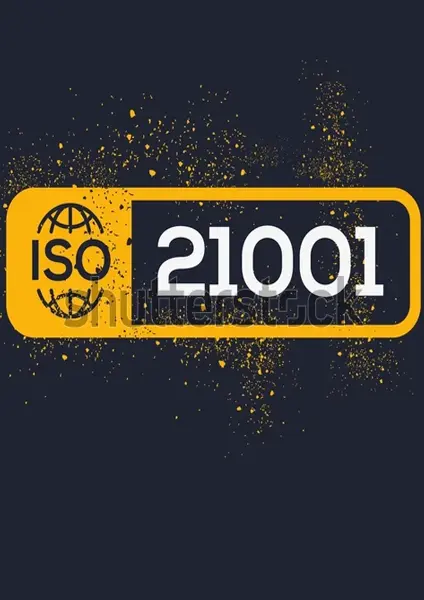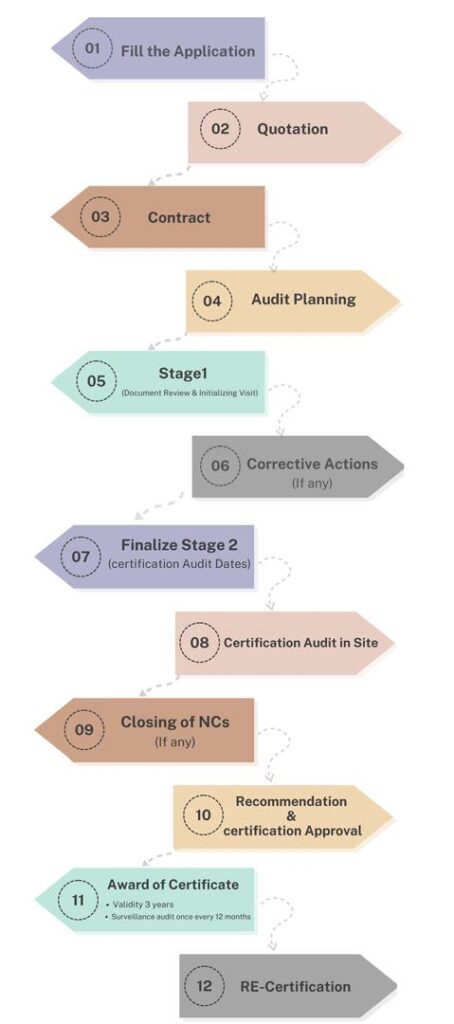In an increasingly knowledge-driven world, educational organizations play a pivotal role in shaping individuals and communities. ISO 21001:2018, the international standard for management systems in educational organizations, provides a framework to enhance learning services, improve stakeholder satisfaction, and achieve better educational outcomes.
This article explores the fundamentals of ISO 21001:2018, its benefits, practical implementation steps, and how it aligns with modern educational needs. Whether you’re managing a university, a training institute, or an e-learning platform, adopting ISO 21001:2018 can set you apart as a leader in educational excellence.
What Is ISO 21001:2018?
ISO 21001:2018 is an international standard specifically designed for educational organizations. It provides requirements for an Educational Organization Management System (EOMS) to enhance the quality of education and meet the needs of learners and stakeholders.
This standard is applicable to all organizations that provide educational products and services, including:
- Schools and universities
- Vocational training centers
- Corporate training programs
- E-learning platforms
Unlike ISO 9001 (Quality Management), which applies broadly to various industries, ISO 21001:2018 is tailored to the unique needs of the education sector, focusing on the interaction between learners and educational organizations.

Why Is ISO 21001:2018 Important?
Education providers face growing demands for quality, accountability, and innovation. ISO 21001:2018 helps organizations meet these challenges by establishing a framework for:
- Improved learning experiences
- Enhanced organizational performance
- Greater alignment with stakeholders’ needs
Key Benefits of ISO 21001:2018
- Enhanced Learner Satisfaction A systematic approach ensures educational services meet or exceed learner expectations.
- Improved Educational Outcomes Continuous monitoring and improvement lead to higher-quality learning experiences.
- Accountability and Transparency Clearly defined processes build trust among learners, parents, and other stakeholders.
- Global Recognition Certification demonstrates commitment to quality and enhances the organization’s reputation on a global scale.
- Alignment with Stakeholder Needs The standard emphasizes understanding and meeting the diverse needs of learners, employers, and regulatory bodies.
Key Principles of ISO 21001:2018
The standard is built on several principles that guide educational organizations toward excellence:
- Focus on Learners and Other Beneficiaries Meeting the needs of learners and other stakeholders is central to the standard.
- Visionary Leadership Effective leadership ensures alignment of educational objectives with organizational goals.
- Engagement of People Involvement of staff, faculty, and learners ensures better collaboration and outcomes.
- Process Approach Well-defined processes improve efficiency and consistency in educational delivery.
- Evidence-Based Decision Making Data-driven insights help organizations improve and adapt to changing demands.
- Social Responsibility The standard encourages sustainable practices and inclusivity in education.
Steps to Implement ISO 21001:2018
- Understand the Standard
Familiarize yourself with the requirements of ISO 21001:2018 and how they align with your organization’s goals. Training sessions or workshops can provide valuable insights.
- Conduct a Gap Analysis
Assess your current practices to identify gaps between existing processes and the standard’s requirements.
- Define Scope and Objectives
Determine the scope of your Educational Organization Management System (EOMS) and set clear objectives aligned with stakeholder needs.
- Develop Policies and Procedures
Create policies that reflect your organization’s commitment to quality education. Develop procedures to support learning delivery, assessment, and evaluation.
- Train Staff and Faculty
Educate your team about ISO 21001:2018 principles and their roles in achieving compliance.
- Engage Stakeholders
Involve learners, parents, and other stakeholders to understand their expectations and incorporate their feedback into the EOMS.
- Monitor and Measure
Regularly track key performance indicators (KPIs) like learner satisfaction, graduation rates, and faculty performance.
- Conduct Internal Audits
Internal audits help identify non-conformities and areas for improvement.
- Certification Audit
Engage a certification body to evaluate your EOMS and issue ISO 21001:2018 certification upon compliance.
Examples of ISO 21001:2018 in Action
Case Study: University
A mid-sized university implemented ISO 21001:2018 to improve its academic offerings and administrative processes. By engaging students and faculty in feedback mechanisms, the university enhanced course content, streamlined enrollment procedures, and improved student satisfaction by 25%.
Case Study: Corporate Training
A multinational corporation adopted ISO 21001:2018 for its in-house training programs. Aligning the curriculum with employee needs and industry standards boosted employee engagement and resulted in a 30% increase in productivity.
Practical Tips for ISO 21001:2018 Implementation
- Use Technology Leverage Learning Management Systems (LMS) and data analytics to track performance and measure outcomes.
- Focus on Inclusivity Ensure your EOMS addresses the needs of diverse learner groups, including those with disabilities.
- Engage Faculty and Staff Encourage active participation from educators and administrative staff to foster a culture of continuous improvement.
- Communicate Benefits Highlight the value of ISO 21001:2018 certification to stakeholders to gain their support.
- Start Small Begin with a pilot project or focus on high-priority areas before scaling the EOMS across your organization.
Challenges and How to Overcome Them
- Resistance to Change
Faculty or staff may resist new processes. Overcome this by involving them in decision-making and providing training.
- Resource Constraints
Small organizations may face budgetary challenges. Prioritize high-impact areas and explore grants or funding opportunities.
- Continuous Monitoring
Maintaining compliance requires regular evaluation. Use performance metrics to guide ongoing improvements.
Conclusion
ISO 21001:2018 is a powerful tool for educational organizations committed to delivering high-quality learning experiences. By adopting this standard, institutions can enhance learner satisfaction, improve outcomes, and establish themselves as leaders in the education sector.
Whether you’re managing a school, training center, or corporate learning program, ISO 21001:2018 provides the framework to align your services with stakeholder needs and achieve excellence. Start your journey toward certification today to build trust, foster innovation, and drive educational success.
Certification Process
1- Completion of information related to the company name, company activities, the number of staff per work shift, website address, and branches.
2- Announcement of costs related to the requested certification issuance process.
3- Preparation and approval of the contract for implementation.
4- Planning the audit process and notifying the client for audit process.
5- reviewing documents to identify the client strengths and weaknesses in comparison to the established documentation.
6- Corrective actions for potential weaknesses.
7- Final planning for conducting the audit, registration, and certification issuance.
8- Conducting the on-site audit process at the client by the specialized team of the certifying company.
9- Corrective actions for potential weaknesses in the execution of the organization’s processes.
10- Recommendation for the issuance of a certification related to the client to the head office.
11- Achieving the related certification.
12- Renew after three years.


